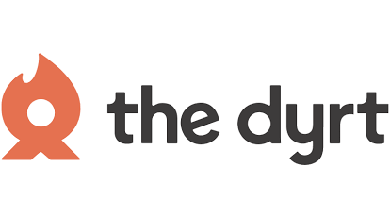CNN: Increased RV Sales Are a ‘Good Sign for Economy’
The following is a report from CNN Business.
At this time of year, a reservation with Chill RV Rentals isn’t usually the easiest to come by.
The Los Angeles-based company’s 16-camper fleet is typically booked solid, with the RVs oftentimes reserved weeks in advance.
That’s just not the case this year, said Nika Shneyder, who started the recreational vehicle rental business with her father in 2016. Bookings are light; plus, the people who are traveling are taking shorter trips, she said.
“We’re definitely seeing demand for RV travel slowed down compared to previous years, and I don’t think it has to do with people coming out [the pandemic] and going on different kinds of trips,” Shneyder said. “I actually think it has a lot to do with people having less discretionary spending available.”
She added: “I think we’re going to pick up this summer, in July and August for sure; but historically speaking, we would have been busier by now.”
On the retail sales side, there are similar stories at play: Businesses are seeing softer, but improving, demand; consumers are showing some hesitancy but still are spending some; and industry members are exhibiting cautious, but growing, optimism.
The industry appears to be not only getting back into gear but also settling into a familiar groove: its role as an economic bellwether.
When consumer sentiment falters or the economy starts to teeter, RV sales follow suit, said Michael Hicks, an economics professor at Ball State University and director of Indiana University’s Center for Business and Economic Research.
RVs are typically large-dollar items for individuals and families, costing about $12,000 to $15,000 for a small, pop-up, tow-behind trailer, to some that run well north of $250,000 or more for a motorhome or luxury offering.
“People don’t make these large, luxury purchases unless they’re actually feeling better about the economy,” said Hicks, who follows the RV industry closely. “It’s so sensitive to interest rate changes, which often precede a downturn.”
RV shipments, a proxy for sales, are starting to pick back up after having bottomed out last year — an aftershock of a wild, pandemic-era upheaval.
So, if business is on the upswing — especially at a time when the dual forces of elevated inflation and high interest rates are serving as headwinds — that could bode well for the economy as a whole, he said.
Still, while that economic indicator doesn’t appear to be flashing red right now, it likely will take interest rates falling from their current 23-year highs before it turns a solid green.
“We think [interest rate cuts] will offer a little bit of a trigger to consumers becoming more active again,” Michael J. Happe, president and chief executive officer of Winnebago Industries, said during the company’s March earnings call.
#Vanlife Fallout-turned-Opportunity
The cost of borrowing is so high right now that Chill RV hasn’t been able to add new vehicles to its fleet.
“We’ve been able to get a little creative with it,” Shneyder said. “Instead of purchasing our own inventory, because the rates are so high, we’ve opened up a consignment program where we rent out privately owned RVs and do a profit-share.”
And that consignment well is pretty deep right now, a reflection of the pandemic-era #YOLO, #vanlife purchases that just didn’t pan out for some.
“We find people who during Covid went out and bought an RV for themselves, and they’re just sort of done with it, they no longer use it,” she said. “And so now we’ve rented it out for them.”
Five of the 16 vehicles in Chill RV’s fleet are on consignment, she said.
Read the full report from CNN Business here.

